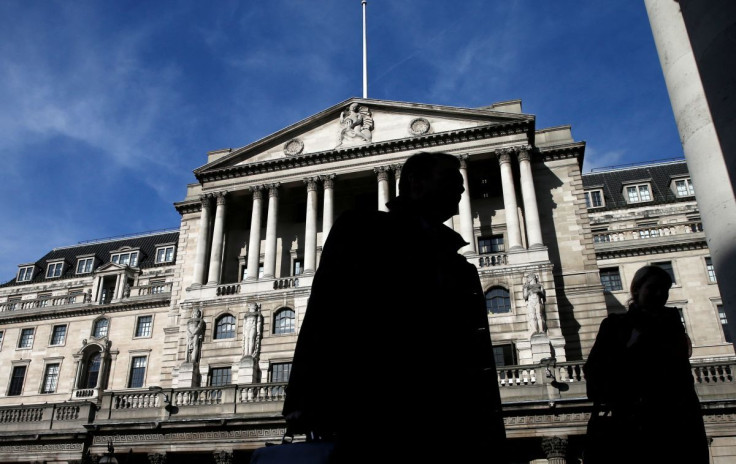Europe's Central Banks Jack Up Interest Rates To Fight Inflation Surge

Central banks across Europe raised interest rates on Thursday, some by amounts that shocked markets, and hinted at even higher borrowing costs to come to tame soaring inflation that is eroding savings and squeezing corporate profits.
Fuelled initially by soaring oil prices in the wake of Russia's invasion of Ukraine, inflation has broadened out to everything from food to services with double digit readings in parts of the continent.
Such levels have not been seen in some places since the aftermath of the oil crisis of the 1970s.
The Swiss National Bank and the National Bank of Hungary both caught markets off guard with big upward steps, just hours after their U.S. counterpart the Federal Reserve lifted rates by the most in almost three decades.
The Bank of England meanwhile lifted borrowing costs by the quarter point markets had expected.
The moves come just a day after the European Central Bank agreed plans in an emergency meeting to contain borrowing costs in the bloc's south so it could forge ahead with rates rises in both July and September.
"We are in a new era for central banks, where lowering inflation is their only objective, even at the expense of financial stability and growth," George Lagarias, Chief Economist at Mazars Wealth Management said.
The day's biggest moves came in Switzerland where the SNB raised its policy rate to -0.25% from the -0.75%, a step so large, not a single economist polled by Reuters had predicted it.
The first SNB hike since 2007 is unlikely to be the last, however, and the bank could be out of negative territory this year, some economists said.
"The new inflation forecast shows that further increases in the policy rate may be necessary in the foreseeable future," SNB Chairman Thomas Jordan told a news conference.
The Swiss franc jumped almost 1.8% against the euro on the decision and was headed for the biggest daily rise since January 2015 when the SNB unhooked the franc from its euro peg.
TIGHTROPE
In London, the Bank of England was more cautious but said it was ready to act "forcefully" to stamp out dangers posed by an inflation rate heading above 11%.
It was the fifth time that the BoE has raised borrowing costs since December and the British benchmark rate is now at its highest since January 2009.
Three of nine rate setters however voted for a bigger, 50 basis point increase, suggesting that the bank will be under pressure to keep raising rates, even as economic growth slows sharply.
"Central bankers are teetering along a tightrope, with the biggest concern that raising rates too quickly could tip economies into recession," Maike Currie, Investment Director for Personal Investing at Fidelity International said.
"Monetary policy tightening is a very blunt tool to manage a very precarious situation."
Despite the hike, sterling fell sharply as some in the market had bet on a bigger move given the Fed's 75 basis points hike the previous evening. The weaker currency, however, means higher imported inflation and further pressure to raise rates.
The pound was last at $1.2085 against the dollar, down three quarters of a percent on the day.
In Budapest meanwhile, the Hungarian central bank unexpectedly raised its one-week deposit rate by 50 basis points to 7.25% at a weekly tender, also to tame stubbornly rising inflation now running in double-digits.
Barnabas Virag, the bank's deputy governor said the increase far was from the last and the bank would continue its rate hike cycle with "predictable and decisive" steps until it sees signs that inflation is peaking, probably in the autumn.
The hike also comes as the nation's currency has lost close to 7% of its value this year, increasing inflation further via higher import prices.
(Writing by Balazs Koranyi in Frankfurt; Additional reporting by William Schomberg in London, Krisztina Than in Budapest, Mike Shields and Silke Koltrowitz in Zurich; Editing by Toby Chopra)
© Copyright Thomson Reuters 2024. All rights reserved.




















